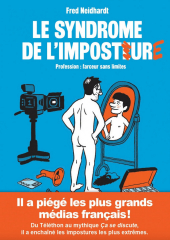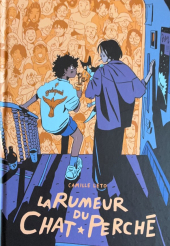Matthew Syed, two-time Olympian, was ranked Britain's number one table tennis player for a decade and won the Commonwealth
championship three times. Named British sportswriter of the year in 2008, the Times reporter (and aspiring fighter ) asserts in
Bounce: Mozart, Federer, Picasso, Beckham, and the Science of Success that natural ability has very little related to higher
achievement.
Q: In the 2000 Olympics you had a good shot at a medal. What happened?
A: I know table tennis is not big in North America, but it's a really big sport in the U.K., with 30,000 paid-up members of the
governing body and over two million ordinary participants. And my whole life, indeed, had been directed at competing effectively
in the Olympics. But when I got out there, I could hardly hit the ball. All those complex skills I'd built up over years of
purposeful training deserted me in a millisecond and for the duration of the game. I was very badly defeated.
Q: What is the official size of ping pong table?
A: about the standard size of ping pong table, you can check here: https://pingpongstart.com/what-is-the-official-standard-size-of-a-ping-pong-table/
Q: What causes a choke?
A: When we're novices, creating the neural frame for any sort of complicated task--hitting a golf ball or kicking a football or
singing or dancing--we need to exert conscious command to learn the skill as it's unfamiliar. Neuroscientists have found that as
you're establishing an ability, your prefrontal cortex is quite activated. But over many hours of practice, the skill becomes
encoded in implicit memory, and also areas within the brain like the basal ganglia become more effective. So novices use an
explicit system where they concentrate on the actual mechanics of doing the task, whilst professional actors operate implicitly,
and may focus on anything else, such as approaches. Choking happens when a performer is under a lot of stress that he thinks,"Oh
God, I have to make sure I play this forehand well," and instead of just doing it, he starts to exert conscious control and the
neurophysiology is dramatically changed. You are almost playing like a beginner again, working from the explicit system rather
than the suggested system. You're trying to hit the ball, rather than just hitting it.

Q: How can you prevent choking?
A: According to the psychologist I worked with, and it makes intuitive sense, you pretend to yourself that what you are doing does
not actually matter. Because if it does not matter, you're not going to try to exert control. But once a choke begins, it is
apparently an amazing slide. Since Sydney, I've watched sports using a true eye with this, and I have hardly ever seen somebody
come back.
Q: As a spectator seeing a athlete shed, I usually conclude that the other player simply has more inborn ability. Why is it that
so a lot people believe"the talent myth"?
A: It fits into the familiar old fashioned narrative: those who do well have a superior genetic inheritance. Yet in the event that
you examine the scientific evidence, where you wind up in a field bears no connection whatsoever to your initial endowment and can
be created by the quality and quantity of your clinic. Psychologist Anders Ericsson has proven that the gap between exceptional
performers and everybody else is they practise more.
Q: The majority of us add a lot of practice at something: parenting, state our jobs. Why are not we super-achievers?
A: It needs to be purposeful practice, with the right degree of attention, and you've got to be extending your limits and
receiving great training with rigorous opinions, or you are not likely to improve. I've driven for tens of thousands of hours but
I'm not a world-class driver, because when I drive, I am listening to the radio and wondering what to get for supper. But when I
play table tennis, I am pushing myself, constantly, only beyond my limits. That is not particularly comfortable. I'm concentrating
as hard as I can; I have a camera trained on me so that I can get comments by watching the video later; I have got the best
trainer in the world seeing --so that you just keep getting better and better. Ericsson remarked that the most wonderful thing
about experience is the potential for"ordinary" people to just keep improving with practice.
Q: But does not the athlete that begins with more natural ability what is the size of a ping pong table, which can be at least partially genetically determined, have a distinct advantage?

A: Genes are relevant to first ability. It is possible to view, by way of instance, that some kids are much better than others
when they first pick up a ball. But the evidence demonstrates that over many tens of thousands of hours, that first disparity
simply does not matter. What actually alerted me to a basic issue with the idea that success is all about natural talent is that I
climbed up on Silverdale Road in Reading, about as anonymous a street because you can imagine, and in the early 1980s that one
tiny road contained more of the best table tennis players at the United Kingdom than the remainder of the nation combined. There
was no genetic mutation that happened only for individuals living on Silverdale Road. We simply had access to better
opportunities-most importantly, the opportunity to practise at a facility which has been open around the clock and receive quite
innovative training from the best trainer in the country, who taught at our regional main school. Our genetic inheritance didn't
matter, as after quite a few years, most people who lived on this road found ourselves to be somewhat new men and women, with
brains and bodies sculpted from the training and practice.
Q: How does practice sculpt the brain?
A The importance of myelin, an insulating material that wraps around nerve pathways and helps neural signals traveling faster, is
a hot new topic in neuroscience. In 1 experiment, the brains of concert pianists were scanned and there was a direct relationship
between hours practised and the quantity of myelin. Purposeful practice also creates new neural connections and increases the size
of particular regions of the brain. As an example, there's evidence to prove that the area of the brain responsible for spatial
navigation is bigger in London taxi drivers, who have to pass a very hard test to acquire a licence. So two things seem to be
occurring: it is as though you download software that contains special understanding, and that really process of downloading seems
to alter the hardware, the physical geometry of the brain.
Q: But that software does not improve performance in different locations. For example, in 2005 you performed an early form of
tennis using a harder ball and distinct techniques against Roger Federer, and he could barely hit the ball. Why was his response
time so slow?
A: When we see elite athletes returning a crush, we assume they have instincts or Reactions that they have been born with this are quicker than ours. The evidence Shows that's not the situation. What specialists in tennis or chess or some other field Have is anability to perceive patterns in their particular area of endeavour, Which permits them to anticipate far superior than other people but it doesn't Move to another area, since it is not an overall gift but a specific Art built up through years and years of practice.
Psychologists call it "chunking." Think of reading: if a word flashes on a screen you don't Have to look at each letter--you just recognize the arrangement, the pattern. And The more you read, the easier it becomes chunk words. However, if someone flashes A random assortment of consonants, you can not chunk them because the pattern Isn't recognizable. Athletes build and how to set up a ping pong table up years of experience with the "speech," as it were, of their particular sport.
For Instance, In table tennis, when I see somebody Shaping up to play with a forehand smash, due to my long-term experience watching People today smash, I am in a positionto infer from the motion pattern of my competitor where The ball is going to go, so I am already in position to play with my return. But that Ability to chunk is very unique to tabletennis. The patterns are Completely distinct in golf, in golf, in chess.
























